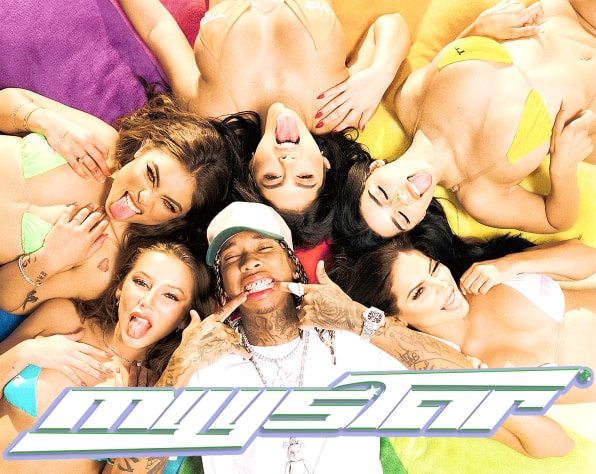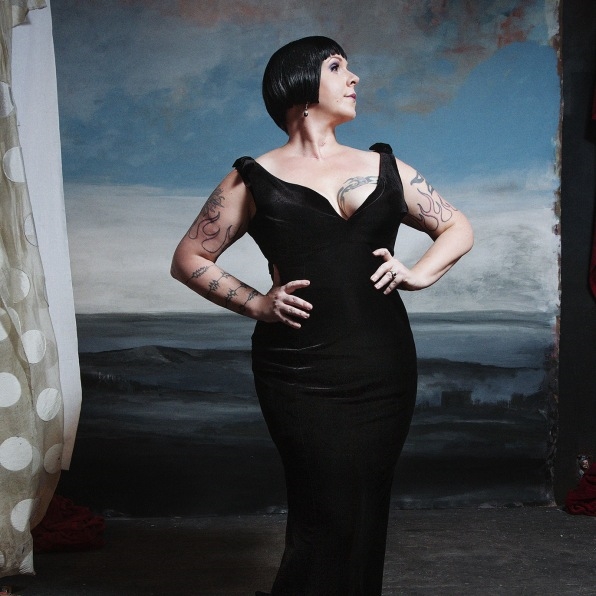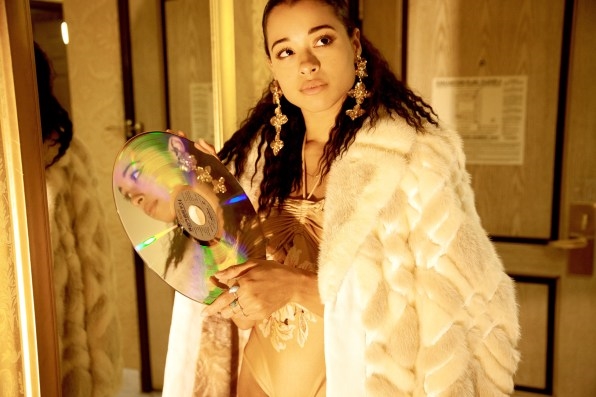After the OnlyFans debacle, these new sex work platforms prioritize design and equity
When OnlyFans announced last week that it would ban sexually explicit content, it was a blow many sex workers knew was coming.
Since launching in 2016, OnlyFans’s explosive growth has been driven by professional and amateur sex workers who were looking for ways to monetize their content; particularly during the outbreak of the pandemic, which had halted in-person sex work and created scenarios where people were turning to digital sex work for the first time to supplement or generate income.
Historically, sex workers have been squeezed out of mainstream platforms, including Snapchat, Tumblr, Reddit, and Patreon, due to any number of external pressures—from payment processors redlining explicit content to sweeping federal laws. In OnlyFans’s case, the company reportedly sought to grow its business by taking on investors who turned out to be wary of backing NSFW content. Then OnlyFans CEO Tim Stokely blamed banks for not processing transactions.
The backlash from OnlyFans’s announcement was swift—and swifter still was the company’s reversal of its decision less than a week later.
It’s a win for sex workers, but it would understandably be difficult for many to move forward on OnlyFans with a sense of ease. Their longstanding fear of having the rug pulled out from under them became a reality once, albeit briefly, so it could well happen again.
OnlyFans was never the only platform catering to adult content, but it certainly contributed to making digital sex work more visible and mainstream. With its success, there’s now a growing wave of startups aiming to leverage that momentum, while innovating on the shortcomings that platforms, including OnlyFans, have had.
“We don’t want to make the Yellow Pages. We’re trying to make the club.”
Rapper Tyga was one of many celebrities who joined OnlyFans—and one of the few who actually put some skin in the game.
Recognizing OnlyFans’s potential, Tyga created a management company for models on the site, but soon saw an even bigger opportunity in starting his own platform. Myystar, which launches in October, has been in the works for months, but Tyga and his business partner and lead designer Ryder Ripps announced their company immediately after OnlyFans declared it would ban explicit content.
“Other platforms felt outdated,” Tyga says. “There’s nothing beyond just seeing something and then getting your money. That’s it—it’s a simple transaction. But there’s more to it than that.”

In addition to only taking a 10% cut of creators’s revenue (compared to OnlyFans’s 20%), Myystar will put a premium on discoverability, allow for NFT transactions, and will have “features relevant to the music industry.” Tyga and Ripps were quiet on specifics but were clear that Myystar is meant to be bigger than a static platform.
“We want this to be something that you can experience in physical space,” says Ripps, who runs the design studio OKFocus. “We want Myystar to be something that you can see; you can experience the community, the life, the energy of Myystar in person.”
Tyga and Ripps also tout how they’re positioning Myystar as being creator-first.
OnlyFans was originally conceived as an add-on to a creator’s existing social platforms. Meaning, the most viable way to make a living on OnlyFans would be to have fans on Twitter, Instagram, and other social platforms migrate to OnlyFans. The lack of discoverability and organic growth for OnlyFans creators has long been an issue that Myystar wants to fix.
“A lot of people just want to maximize their situation,” Tyga says. “On Myystar, we’re going to give you a way where more people can find you. We’re going to give you a way where you can get into crypto and make money that way. We’re trying to maximize the money for people, and the experience, and the creative freedom.”
And maximize the look of the platform itself.
Ripps has worked on branding with music label 88Rising and the fashion brand and network VFiles, as well as with such artists as Travis Scott and Kanye West. “We’re coming at this in a very, like, artistic way,” Ripps says of Myystar. “Tyga is an artist. I’m an artist. This is going to be finely made. We don’t want to make the Yellow Pages. We’re trying to make the club.”
“If we do this, it could potentially be a historic change.”
OnlyFans’s initial decision to ban explicit content was seen as the company putting profits over the already marginalized adult content creators on the platform.
PeepMe‘s agenda is the opposite, so much so that the platform is structured as a cooperative, i.e. creators collectively share in the profits and have a voice in how the company is run.
“With the cooperative model, we’ll be able to codify into the operating agreements that the company can’t be sold at all,” says Donia Love, cofounder and CEO of PeepMe, which is slated to launch what Love calls a minimal viable product by the new year. “By doing so, we address that specific pain point that you don’t ever have to feel like this is going to be pulled out from underneath you.”

PeepMe has largely been developed by a team who have worked in and around the sex industry, which lends much needed empathy to sex workers and insight into what they need.
“I dealt with my own personal experiences of being de-platformed from Airbnb, from PayPal, losing a credit card, all for just identifying as sex-work adjacent,” Love says. “I’ve watched my loved ones and best friends de-platformed for identifying as sex workers. The harm and the violence that causes, the fear, the anxiety—these executives who have no lived experiences are making these decisions, and either they don’t care or they have no idea the impact that it creates.”
Having the lived experience of your clientele is a great starting point, but Love isn’t taking anything for granted.
“I don’t think that just because we slap a label on something that’s ‘by and for sex workers’ that we’re automatically entitled to trust,” Love says. “As somebody who has been in the business of having to build trust, it’s a precious thing. And that’s something that we always have to keep in our hearts.”
“At the end of the day, this is a labor issue,” adds Selena the Stripper, president of the coalition Strippers United and DEI lead at PeepMe. “This is about making sure that people are getting paid and feeling like their workplace is the workplace they want. And as we exit to co-op, creators get to share in the profits of the site and get to make decisions about its direction. I think that we’ll build trust that way.”
Both Love and Selena are clear that PeepMe isn’t gunning for the lion’s share of adult content platforms. In fact, they view OnlyFans’s reversal as a resounding step forward for sex workers, and the platform itself as a vital presence to move the needle even further.
“We need platforms like OnlyFans with the resources and reach that they have. It’s crucial,” Love says. “It’s really powerful that OnlyFans is deciding to stay within the industry, because we need people that are harnessing the multimillion-dollar resources they have to go fight for us. We’re not in a position to do that right now, but OnlyFans definitely is.”

“[OnlyFans has] the ability to have a voice on major policy issues,” adds Selena. “But a lot of times they just don’t care enough to leverage their power in favor of sex workers and in favor of sex-workers rights, which is where all of this is pivoting.”
But Selena rightly notes that the burden of systemic change shouldn’t rest solely on sex workers.
“People are just surviving,” Selena says. “And we’re just trying to create one workplace where people feel heard and cared about and feel like they have a say in it. That’s our piece of the anti-oppression pie.”
That said, PeepMe has the potential to be a very valuable piece.
“It’s already not easy to start a company in the middle of COVID, [let alone] an adult company, but the return is going to be fucking amazing,” Love says. “If we do this, it could potentially be a historic change.”
Fast Company , Read Full Story
(46)



